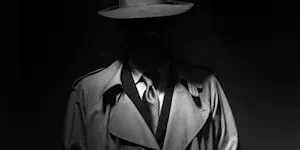What Makes This Word Tick
"Imperious" is one of those words that strikes a chord of authority and command, often painting a picture of someone barking orders without a hint of modesty. Its pronounced air of superiority and unyielding demeanor make it ideal for describing a person who seems born to lead—or at least thinks they are.
If Imperious Were a Person…
Imagine a character with a penchant for velvet capes and a tendency to erect chins rather higher than necessary. They might waltz into a room with an eyebrow raised, as if to say, "Here I am, world." Most likely, this person has a favorite phrase: "Do as I say!"
How This Word Has Changed Over Time
While "imperious" may conjure images of relentless rulers or bossy board members today, it has not always maintained such a pejorative tone. Originally, it denoted something regal or magnificent—worthy of an emperor. Over time, however, the connotation shifted, casting a somewhat less flattering light on those who exhibit its traits.
Old Sayings and Proverbs That Use Imperious
You might not find a proverb that uses "imperious" word-for-word, but in spirit, sayings like "Pride goes before a fall" capture the heart of a demeanor so commanding, it's ripe for a humbling.
Surprising Facts About Imperious
"Imperious" shares etymological roots with "emperor," making them linguistic cousins. This word’s shape in the English language reveals its Roman origins—after all, there's no command quite like an imperial command.
Out and About With This Word
You might encounter "imperious" during a heated boardroom battle as someone dismisses alternative strategies or casually at a dinner party where a guest monopolizes the conversation with demands rather than discussions.
Pop Culture Moments Where Imperious Was Used
In the realm of Harry Potter, Professor Snape might quickly come to mind. He had a gaze that could silence a room and a tone like a strict conductor of a particularly unruly orchestra. Even though the word’s not uttered onscreen, his demeanor was a masterclass in imperious behavior.
The Word in Literature
"Imperious" fits right into the pages of Shakespeare or Jane Austen, thick with characters who think they command the scenery. From Shakespeare’s tyrants to Austen's Lady Catherine de Bourgh, it waltzes across the literary stage with a lofty air.
Moments in History with Imperious
Consider Napoleon Bonaparte standing before his troops, or Queen Victoria declaring, "We are not amused." These are moments thick with imperious spirit—times when personalities and actions spoke as loud, if not louder, than words.
This Word Around the World
In French, "impérieux" carries much the same meaning, maintaining its haughty connotations. Across cultures, the notion of overbearing authority is virtually universal, whether captured in language or an imperious expression during a conversation.
Where Does It Come From?
"Imperious" can trace its lineage back to the Latin "imperiosus," reflecting its powerful connection to "imperium," or command. Linguistically, it’s built from the bones of empire.
How People Misuse This Word
Sometimes "imperious" is mistakenly used for someone who's simply confident or assertive, rather than truly overbearing or domineering—a subtle, yet vital distinction in communication.
Words It’s Often Confused With
Imperial: Pertaining directly to an empire; lacks the personal commanding element.
Authoritarian: Suggests strict control, particularly in government, whereas "imperious" is more personal in nature.
Domineering: While closely related, it hints more at oppressive control rather than purely haughty command.
Additional Synonyms and Antonyms
Synonyms to sprinkle in might include "peremptory," "overbearing," or "commanding." As for antonyms, consider "humble," "submissive," or "meek."
Want to Try It Out in a Sentence?
As she issued yet another decree about the organization of the pantry, her housemates rolled their eyes at her imperious manner, half-amused, half-exasperated.
















